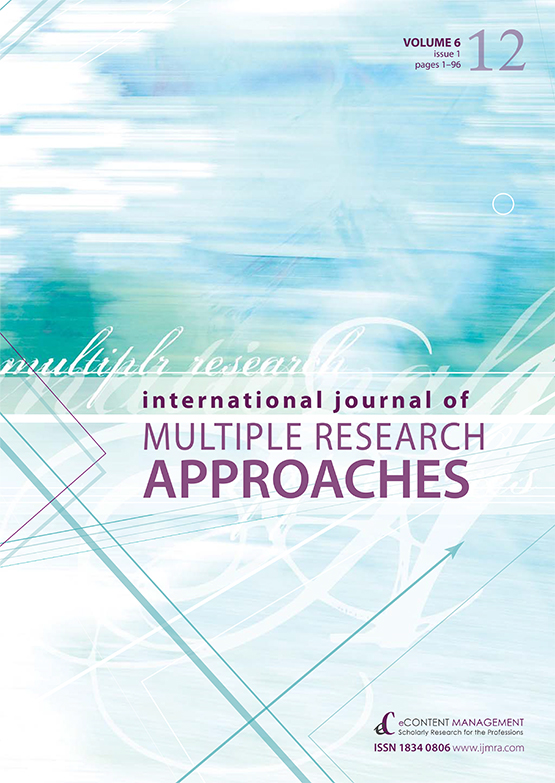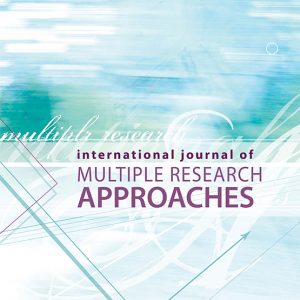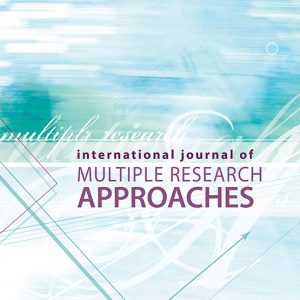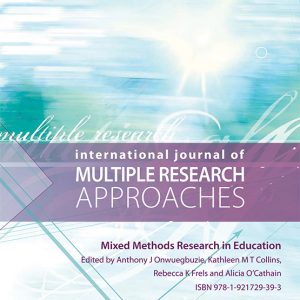6(1).8. How to make (more) common sense: Inquiry cycles as a meta-epistemology of multiple methods, methodologies, perspectives and approaches
$30.00
Description
EXEMPLAR
How to make (more) common sense: Inquiry cycles as a meta-epistemology of multiple methods, methodologies, perspectives and approaches
YOLAND WADSWORTH
Centre for Applied Social Research, RMIT University; McCaughey VicHealth Centre for the Promotion of Mental Health and Community Wellbeing, University of Melbourne, Melbourne, VIC, Australia
Abstract
I introduce an abridged version of Chapter 3 ‘Cycles of Research, Evaluation and Inquiry for Life’ from Building in Research and Evaluation: Human Inquiry for Living Systems (Wadsworth, Y., Action Research Press, Hawthorn and Allen & Unwin, Sydney: 2010, pp. 51–138 – reviewed by Grbich, 2010). I locate this within many decades of discussion of multiple and conflicting paradigms, methodologies and methods, noting the contribution by the late Michael Crotty of his important analytic framework (Crotty, 1998). I argue that despite a current ‘mixed methods’ truce, continuing splits and skirmishes are in important part related to differences in what I an calling human ‘inquiry preferences’: writ small in individual psychology and writ large in the often equally seemingly mutually-exclusive multi cultures of specialising schools of social, political, economic and methodological thought, their philosophies of knowledge and ever-expanding profusion of methods, techniques, associated literatures and proponents. I describe the difficulties of abridging such a complex detailed meta-epistemology for making sense of these countless methods and approaches. I sketch nevertheless a way by which the various aspects associated with these multiple methods and approaches can be generally yet coherently mapped around an integral mental architecture of a human inquiry or action research cycle. The details and implications for research teams, inquiry groups and inquiring individuals for their prospects of fully traversing cycles of (retroductive) analytical observation of current/past action, to new (inductive) grounded observation, to (abductive) reflection and theorisation, and to (deductive) planning, implementation and observation of new ‘experimental’ action, are referenced.
Keywords: meta-epistemology, multiple approaches, inquiry cycles, action research, philosophy of science, methods, techniques, methodologies, integral theory, epistemologies



